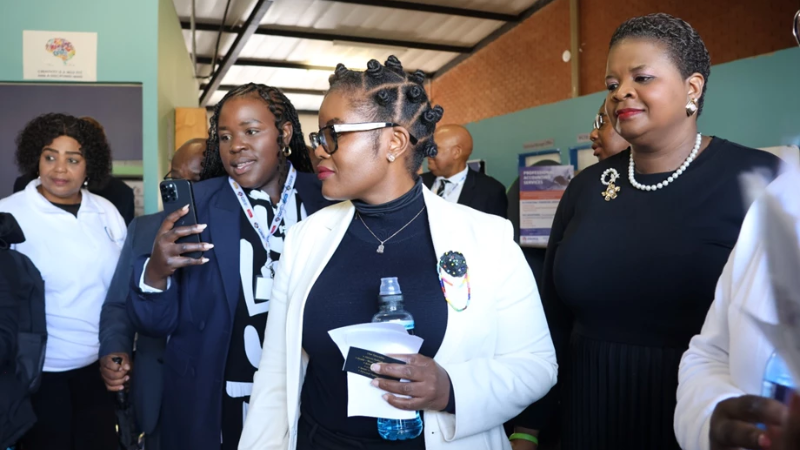
South Africa’s Deputy Minister of Higher Education and Training, Dr Mimmy Gondwe, has called for a bold rebranding and repositioning of Technical and Vocational Education and Training (TVET) colleges to enhance their appeal and role in equipping the youth with future-ready skills. Her remarks were delivered during the recent Education World Forum (EWF)—the world’s premier gathering of education and skills ministers—held in London, United Kingdom.
This year’s EWF, themed “From stability to growth; building stronger, better, bolder education together,” brought together ministers and education leaders from around the globe to discuss the most pressing challenges and innovative solutions shaping the global education landscape.
Elevating the Profile of TVET and Community Colleges
Participating in a dedicated session on vocational education and skills development, Gondwe emphasized that South Africa’s TVET and community colleges are underutilized assets in the country’s drive toward economic revitalization and inclusive development.
“In South Africa, TVETs and community colleges are often the second or third choice for students,” said the Deputy Minister. “This is largely because universities dominate the education narrative and receive a lion’s share of the budget. To change perceptions, we must rebrand TVET institutions as engines of opportunity, innovation, and employment.”
Gondwe argued that for TVETs to become a first-choice educational pathway, they must be reshaped to offer future-oriented skills such as artificial intelligence (AI), robotics, coding, green technologies, and advanced manufacturing. She stressed that these skills are critical to ensure young people are equipped for participation in a technology-driven and rapidly evolving economy.
Public-Private Partnerships: A Key to Workforce Readiness
During another parallel session focused on public-private partnerships in education, Gondwe joined ministers from Paraguay, Botswana, and Hungary to reflect on the power of collaboration between governments and the private sector in advancing education and employability outcomes.
She noted that her office has been actively working on forging partnerships with industry players to close the gap between education and employment.
“We are actively pursuing mechanisms to ensure that students from our higher education institutions—particularly TVETs—can either be absorbed into the economy or create their own employment opportunities,” Gondwe said. “Strong partnerships with business and industry are crucial to tackling youth unemployment, which remains one of the highest in the world, and aligns with the Government of National Unity’s (GNU) priorities of job creation and poverty reduction.”
Lessons from the UK: A Model for Industry-Linked Training
During the visit to the UK, Gondwe also toured Richmond upon Thames College, a prestigious public institution known for its strong academic and vocational offerings. The college boasts over 2,000 students and maintains more than 1,500 active engagements and partnerships with employers.
Richmond’s vocational programs span fields such as:
Forensic Science
Carpentry
Aviation
Computing and IT Installation
Medical Sciences
What sets Richmond apart, Gondwe noted, is its employer-designed curricula, ensuring that training is closely aligned with market demands. This approach not only improves student employability but also ensures that vocational education evolves in step with industry trends.
“The visit offered valuable insights into how vocational education can thrive when embedded within industry ecosystems,” she said. “South Africa must draw from such models to craft TVET systems that are dynamic, demand-driven, and globally competitive.”
Building Resilient and Inclusive Education Systems
The broader conversations at EWF 2024 focused on strengthening education systems in the face of global challenges such as technological disruption, inequality, and the climate crisis. With an emphasis on resilience, inclusivity, and innovation, ministers explored strategies to harness education as a tool for equitable and sustainable socio-economic development.
South Africa’s engagement in these discussions signals a renewed commitment to educational reform, particularly through international collaboration, digital transformation, and investment in skills development.
Looking Ahead: A New Chapter for TVET in South Africa
As the country battles persistent youth unemployment and a mismatch between graduate skills and labour market demands, the rebranding of TVET colleges—as advocated by Dr Gondwe—could be a pivotal turning point. If successfully executed, this shift could unlock new pathways for economic participation, entrepreneurship, and national development.
“We must change the narrative,” Gondwe concluded. “Vocational education must be seen not as a fallback, but as a forward-looking, aspirational choice that builds skills, fuels innovation, and secures the future of our youth.”


